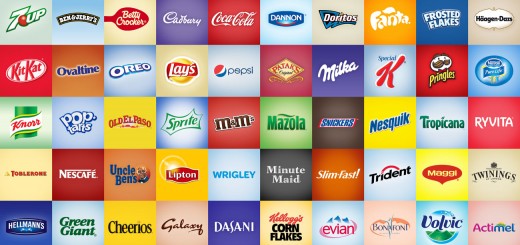Echo Chamber: Revealed, the Facebook Ad Tech Strategy… And it’s Kind of Like Google
In his weekly missive, Ciaran O’Kane, ExchangeWire, CEO explains how Facebook’s increasing forays into the ad tech sector is where ‘the rubber meets the road’ for the social network’s masses of data on its billion-plus users.
Advertising technology is the blood and guts of content monetisation on the internet. For most it is unglamorous and bereft of the perceived sexiness of high level agency machinations – the antithesis to the celebrity-type news cannon fodder that permeates the mainstream trades.
For those actively knee-deep in it, we know how essential advertising technology is to making money in digital.
Those companies that ignore it inevitably suffer the commercial pains of a flawed strategy. For those embracing its complexity and investing the necessary resource it can be transformational.
When Google bought DoubleClick, it made the move from pure-play media to advertising technology. It recognised the power of owning the media execution layer for display and search buys to feed its huge media business.
Five years on Google has not looked back, and now effectively owns the ad tech space. With a stack reaching across the digital advertising ecosystem, Google’s tech and media offerings take margin everywhere.
You can berate ‘the big G’ all you want but from a commercial point of view it is flawless at making money – shameless, granted, but its execution of every piece of its digital advertising business is something to marvel at.
Enter Facebook into our ad tech world
Facebook has been awkwardly dabbling in advertising technology for the past few years, mostly with FBX. When it arrived it was heralded by the leading trades (mostly in the US) as a huge move by the social media giant.
Synching cookies within the Facebook domain for a bunch of bidders proved to be nothing more than experimentation. With it hardly registering on revenue numbers, it got little love by the company as a whole. Will it be allowed to die off? Of course not, and I’ll explain why a little further along in this post.
Facebook’s journey from social media company to ad tech giant started with the Atlas acquisition. The reason for this is a simple one: Facebook is not really a social media company, it’s a data company. Between the key social utilities of Facebook, Instagram and WhatsApp it has the ultimate cross-device data set.
Its real value for advertisers, agencies, partners and publishers is unlocking the data it has on over a billion active users.
I must caveat all this by noting that Facebook as a “social media” business is doing quite well at the minute, but if it really wants to accelerate growth and take on Google it needs to leverage all this first party data.
And, yep you guessed it, ad tech is how it is going to help Facebook achieve this. Whether it’s built or bought, it will be interesting to observe. It’ll probably end up being a mixed strategy.
Facebook ad tech strategy: Piecing DoubleClick 2.0 together
Facebook has been actively hiring ex-DoubleClickers over the past 12-24 months, and it has to be expected that these senior hires will steer its ad tech strategy in the general direction of Google.
Its acquisition and subsequent rebuild of Atlas is just the beginning. Facebook is already building capabilities around attribution, and making noise about multi-touch while berating the current last-click system (which has served Google so well in tightening its grip on the space).
A DSP is also coming this quarter – or the second quarter. It’s inevitable. As one Googler put it to me recently: “It’s where the rubber hits the road for Facebook’s data”.
And he’s right. It will doubtless be the predominant data-driven bidder in the space when it finally lands in 2015.
The key here will be cross-device targeting which is the strongest in the industry, and the agencies will eat it up – committing tons of spend to the socially-powered bidder. The age of the data-driven bidder has arrived.
I expect Facebook will reposition FBX and build out a proper advertising exchange, piling in its third-party inventory from publishers running its ads (Facebook ad net) as well as Facebook inventory.
By adding its own demand (long-to-mid tail buyers/FB DSP) and third-party demand (external bidders), it can manage yield and increase its margin from both the buy and sell side.
What Facebook could do with in the coming 12 months is some publisher side ad tech.
By having a publisher ad server with SSP functionality could help it secure inventory and data – as well as offer a compelling option to Google, particularly around mobile.
And let’s be frank here, Facebook could win lots of publisher if it could raise the paltry CPM rates currently being offered to publishers.
Let’s summarise those key steps in Facebook’s ad tech metamorphosis in full:
– The ad server of record
It’s the dumb pipe of the ad tech stack. But don’t underestimate the powerful attribution offering Facebook can push through Atlas. It’s the attack on the on the last-click model, which ultimately helps the performance metrics of Facebook’s core revenue driver, its own media.
– The Facebook DSP, where the rubber meets the road
It’s the next step in Facebook’s ad tech strategy. Built into Atlas, it will be HUGE for programmatic.
– The rebirth of FBX
Forget the early fumbling of the initial FBX incarnation. The next iteration will be like a super-stregth Adx. And this is where Liverail will come in, heaping higly-priced video inventory into mix. FBX 2.0 will be a cross-device yield management money-making machine.
– Acquiring the publisher ad tech stack
Facebook will realise soon enough that they will need a publisher offering to help to lock down some of the more tastier pieces of publisher inventory and data. I suggested in a post earlier this year that Facebook will buy a scaled primary publisher ad server with SSP functionality – and that it was likely that AppNexus or OpenX. I still think this will happen. Big pay day coming for either these two or some other outlier.
So there you have it, the blueprint for Facebook’s ad tech strategy. It will be interesting to see if they can execute on such an ambitions game plan.
So what does it mean for the rest of us? It’s a splintering of spend allocation, and in the interim it will introduce more competition. It will definitely mean a better bargaining position for some constituent players (marketers, agencies and publishers).
But careful now: the new boss looks uncannily like the old boss.
The post Echo Chamber: Revealed, the Facebook Ad Tech Strategy… And it’s Kind of Like Google appeared first on ExchangeWire.com.


